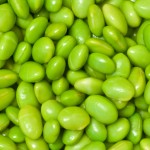 Soy protein could alleviate the symptoms of fatty liver disease, according to a new study from the University of Illinois. Through partially restoring the function of a key signaling pathway in the liver, soy protein could significantly reduce fat accumulation and triglycerides in the livers of obese patients. The protein is found in products such as tofu or soy yogurt. For the study, researchers split lean and obese rodents into two groups and fed one group a diet containing casein, which is a milk-based protein, and the other a diet containing soy protein. The rodents followed the diet for 17 weeks. They found that in the lean animals, the diet had no effect on fat accumulation in the liver; however, the obese rats on the soy diet had a 20 percent reduction in triglycerides and overall fat accumulation in the liver.
Soy protein could alleviate the symptoms of fatty liver disease, according to a new study from the University of Illinois. Through partially restoring the function of a key signaling pathway in the liver, soy protein could significantly reduce fat accumulation and triglycerides in the livers of obese patients. The protein is found in products such as tofu or soy yogurt. For the study, researchers split lean and obese rodents into two groups and fed one group a diet containing casein, which is a milk-based protein, and the other a diet containing soy protein. The rodents followed the diet for 17 weeks. They found that in the lean animals, the diet had no effect on fat accumulation in the liver; however, the obese rats on the soy diet had a 20 percent reduction in triglycerides and overall fat accumulation in the liver.
Nearly one out of three adults in America has fatty liver disease, and many of them are not symptomatic and may not even realize they have the condition. Obese people are at an increased risk of developing fatty liver disease. With obesity, the transport of fat to adipose tissue can slow down to the point at which the liver becomes essentially, a “dumping ground” for excess fat. When this happens in an organ that is not supposed to store fat, such as the liver, the organ’s vital function can be dangerously compromised and in the case of fatty liver disease, it can lead to liver failure. The study findings suggest that by partially restoring the function of a key signaling pathway, called Wnt/β-catenin, soy protein could help reduce liver fat accumulation in obese people.
Dr. Scott Cunneen, Director of Bariatrics at the Center of Minimally Invasive Surgery at Cedars-Sinai Medical Center said “This study demonstrates once again the complexity of the interactions that contribute to the epidemic of obesity we are experiencing today.” He explained that the common belief “calories in, calories out” over simplifies the causation of obesity. “It is becoming increasingly clear that the quality of the food we eat plays an important role in how we manage and store the calories we consume,” Dr. Cunneen concluded.
It has been known for decades that fat production by the liver runs on a 24-hour cycle, known as the circadian rhythm. It is similar to the sleep-wake cycle. Last year, a study found that the molecules that protect the liver from fat work as “shift workers” during the day. You can read more about the study here.






Nutrition & Lifestyle